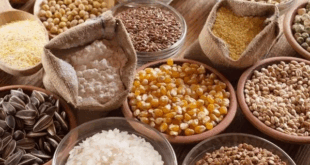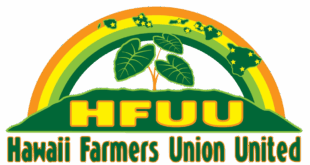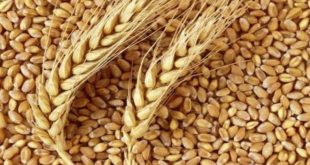Biotechnology can be defined as the technique of utilising living organisms to transform existing raw materials into more useful forms. Biotechnology is used in emerging health fields such as agriculture, food and microbiome research, personalised medicine, and alternative protein sources. Countries around the world have entered into a race to use biotechnology as a lever for economic growth, food security, public health, and strategic superiority. For example, the EU has planned concrete steps such as establishing a European Biotechnology Centre to guide biotechnology companies, preparing an ‘EU Biotechnology Law’ to consolidate scattered legislation and strengthening university-industry collaboration through new programmes.
Under the heading of bioeconomy, China has decided to support biotechnology in seed production, biomaterials and synthetic biology with special funds. On the other hand, the doctor who created twin babies using gene editing methods was sentenced to three years in prison.
In recent years, plant breeding has entered a new era. In the 2013s, the gene editing method (New Breeding Technique = YIT), which earned its discoverers the Nobel Prize, has also significantly shortened the breeding period. In this method, there is no transfer of genes from outside, as in GMOs. Instead, the targeted gene is silenced, its effect is increased or decreased or it is subjected to micro-mutation by applying temporary DNA-cutting enzymes. As is known, there are approximately 4,000 registered varieties worldwide that have been created through natural mutation.
The number of startups operating in the field of biotechnology in Türkiye is growing rapidly. According to Turkish Statistical Institute (TÜİK) data, the number of biotechnology companies, which was 499 in 2020, has reached 687 as of 2023. Forty percent of these companies are involved in health biotechnology (drugs, vaccines, diagnostic kits, etc.), while 30% are involved in agricultural biotechnology (genetic engineering, i.e., YIT, non-GMO plant breeding). While the increase in the number of companies indicates that the ecosystem is gaining momentum and activities are taking place in various sub-sectors, the share of biotechnology in the country’s R&D expenditures remains very low (around 1% in 2023). An even more striking issue is that graduates in ‘Molecular Biology’ are among the top professions experiencing the highest brain drain.
Current legal regulations related to agricultural biotechnology are governed by the Biosafety Law enacted in 2010. Under this law, the use of all genetic modifications (YIT and GMO) in agricultural production is prohibited. This situation limits R&D and commercialisation related to gene editing (YIT).
While actors such as the US, China and the EU are investing billions of dollars in biotechnology, Türkiye faces a serious risk of falling behind. If the necessary steps are not taken, our technology gap may deepen and biotechnological dependence on foreign sources could become chronic. Reliance on foreign sources for seeds could undermine food security. The pace of global competition could leave the country as a technology consumer if the necessary measures are not taken.
Similarly, if we fail to establish our own biotechnology line, we will not be able to retain trained or trainee personnel in the field of biotechnology.
Biotechnology is, by its very nature, an area open to social debate. In Türkiye, society is not sufficiently informed in this area. In today’s conditions, where ideological and scientific wars continue, social resistance may prevent some important biotechnological applications from being implemented. Indeed, in 2024, field trials of rice strains developed through gene editing at the University of Milan were destroyed by environmental groups.
YIT has begun to be used to increase productivity and disease resistance in cattle, sheep, poultry and even aquaculture:
• In 2019, freshwater tilapia in Argentina;
• Fangri coral in Japan was improved;
• In Russia, the first calf was cloned using CRISPR (eliminating cow’s milk allergy).
There is a major obstacle to agricultural biotechnology in Türkiye, particularly in the area of YIT. That obstacle is the EU, which is our main gateway for agricultural exports. While more than 30 countries around the world have legally implemented gene editing, the EU continues to apply the biosafety regulations issued in 2001 for GMOs. However, this application, which requires health and environmental reports that only large international companies can afford, makes it unlikely that public and small breeding companies will be able to participate in the development of new varieties.

The 2018 EU Court ruling that ‘all genetically modified plants are GMOs’ has not been changed in six years and while other countries (see map, countries where YIT is applied in green areas) are growing YIT products for food safety, EU farmers are farming in Europe, where ideology has triumphed over science. While the EU says no to GMOs or YIT, it is also indirectly hindering the implementation of YIT applications in Turkish agriculture.
As a result, we must urgently introduce plant and animal genotypes that can adapt to rapidly changing conditions into production, and biotechnology offers new methods to achieve this. We must not forget that India has developed a new chickpea variety using YIT in just four years, a process that would have taken 10-12 years using traditional breeding methods.

By Professor Dr. Nazimi Açıkgöz
 THE GLOBAL WINDOW OF TURKISH FOOD AND AGRICULTURE The Global Window of Turkish Food and Agriculture Sector
THE GLOBAL WINDOW OF TURKISH FOOD AND AGRICULTURE The Global Window of Turkish Food and Agriculture Sector








